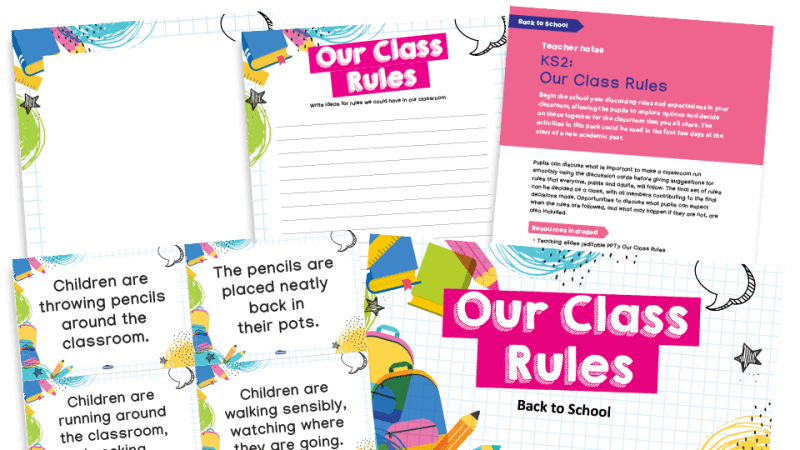Don’t Beat Yourself Up Over Early Years Timetabling

All great early educators aspire to create the perfect learning environment, but with the things you can’t change just do what you can

Many of us now know that child-led, play-based learning is the very best way for children in the EYFS (and beyond) to make progress.
It is thrilling to see so many of my fellow Reception teachers taking the plunge and following an approach they know is right for their children. Where there comes change, however, there inevitably comes challenge, and for some the pressure of making sure that they are ‘doing it right’ can be immense.
I find that many teachers feel that one of the difficulties of incorporating this way of teaching and learning into a school-based environment is that they often feel restricted by a timetable imposed upon them by senior management or parental expectation.
So if you have fought the battle to implement child-led learning in your setting and won, how do you ensure that children get enough quality play time in amongst all the other expectations of daily school life?
Unavoidable interruptions
It is a question I have had to answer, as I too have faced this pressure, and I still often wonder if my timetable is as good as it could be.
Working in an independent school adds an additional level of challenge for me: we have subject specialist teachers from Reception to Year 6 and participation is non-negotiable. Weekly bushcraft, PE, IT and music lessons are all part of our timetable.
Although this is not ideal when you are trying to run a free-flow, child-led setting, the children love the lessons and love spending time with the different adults they meet (Mr Hemingway, the bushcraft teacher, even brings along his dog!).
I know, for example, that many settings have successfully removed PE lessons from the timetable for Reception. This is brilliant if you have the facilities to allow children to run, climb, jump and balance within your outdoor area.
Unfortunately we share our small outdoor space with the whole school and have to pack away our provision four times a day. This means that we simply cannot provide many of the resources children need to satisfy the Early Years Outcomes in physical education. This is not ideal by any means, but we make it work.
So if, like me, your class has certain activities that they and you absolutely cannot avoid, what can you do?
I find that timetabling the activities for the start or end of sessions works best. The start of the day, just before lunch or just after lunch are the ideal times if you are looking to minimise disruption and ensure that children have the maximum amount of time to play and explore.
None of our timetabled sessions lead into one another, as this can often result in too much static listening and instruction time for young children to manage. If it is possible, then forgoing whole-school assembly in favour of a short class group time and opting out of playtimes and snack-times also allows children more opportunity to follow their interests and become engrossed.
Designated playtimes should not really be necessary as all good settings have continuous free-flow between indoors and outdoors (they are often just a break for staff and this can easily be worked around). Snack-times can be eradicated with the introduction of a snack bar, accessible throughout the morning or afternoon.
In practice
By way of example, this is our timetable for the week. Every minute not spent in the listed activities is child-led time. Even with timetabled sessions, it still works out at over 17 school hours a week of pure, unadulterated play:
Monday • 1 hour of bushcraft • 15-minute phonics session
Tuesday • 30 minutes of music • 15-minute phonics session
Wednesday • 1 hour of PE
Thursday • 15-minute phonics session
Friday • 30 minutes of music • 30 minutes of IT • 15-minute phonics session.
We also gather for a 20-minute group time at the end of each day. This might involve reading a story, talking about our day, sharing ideas or singing songs.
Accept what you can’t change
As much as we want the reassurance of looking at other settings’ timetables and talking to each other to make comparisons, it is most important to consider what is best for your children and feasible for your school. Becoming a child-led Reception class is the most important and exciting journey you can embark upon, and the children in your care will flourish in more ways than you ever thought possible if you make it to your destination – so don’t let yourself feel guilty if there are some things you simply cannot change.
Looking at my timetable, I know that there are lessons that we could lose if my school allowed. Our children have regular access to IT and technology within the classroom through the use of iPads, the computer, the interactive board and cameras, so do we really need an IT lesson? Probably not. The children look forward to it all week, though, and eagerly anticipate time spent with the IT teacher and all the exciting activities in which they are able to take part. At the moment, it is not something we can change and that is perfectly acceptable.
TAILOR YOUR TIMETABLE
There may be ways you can maximise your children’s play time – but if you’re already doing all you can, don’t worry!
• Have a look at your timetable and see if there is anything you can afford to lose. Do you have a fantastic outdoor area that lends itself to physical development? Maybe you could drop PE lessons. Maths and literacy lessons can be incorporated into children’s play and do not need adult-led focus groups.
• Try to schedule lessons or group work at the start or end of each session so that they do not interfere with children’s involvement in their play.
• Don’t feel guilty if your setting is not the same as others that you may deem better or more pedagogically appropriate. Each setting is as individual as each child and it is important not to worry if your class is not timetabled in the same way as others.
Sophie Blackwell is Head of Early Years at Moorfield School and Nursery, Ilkley.







